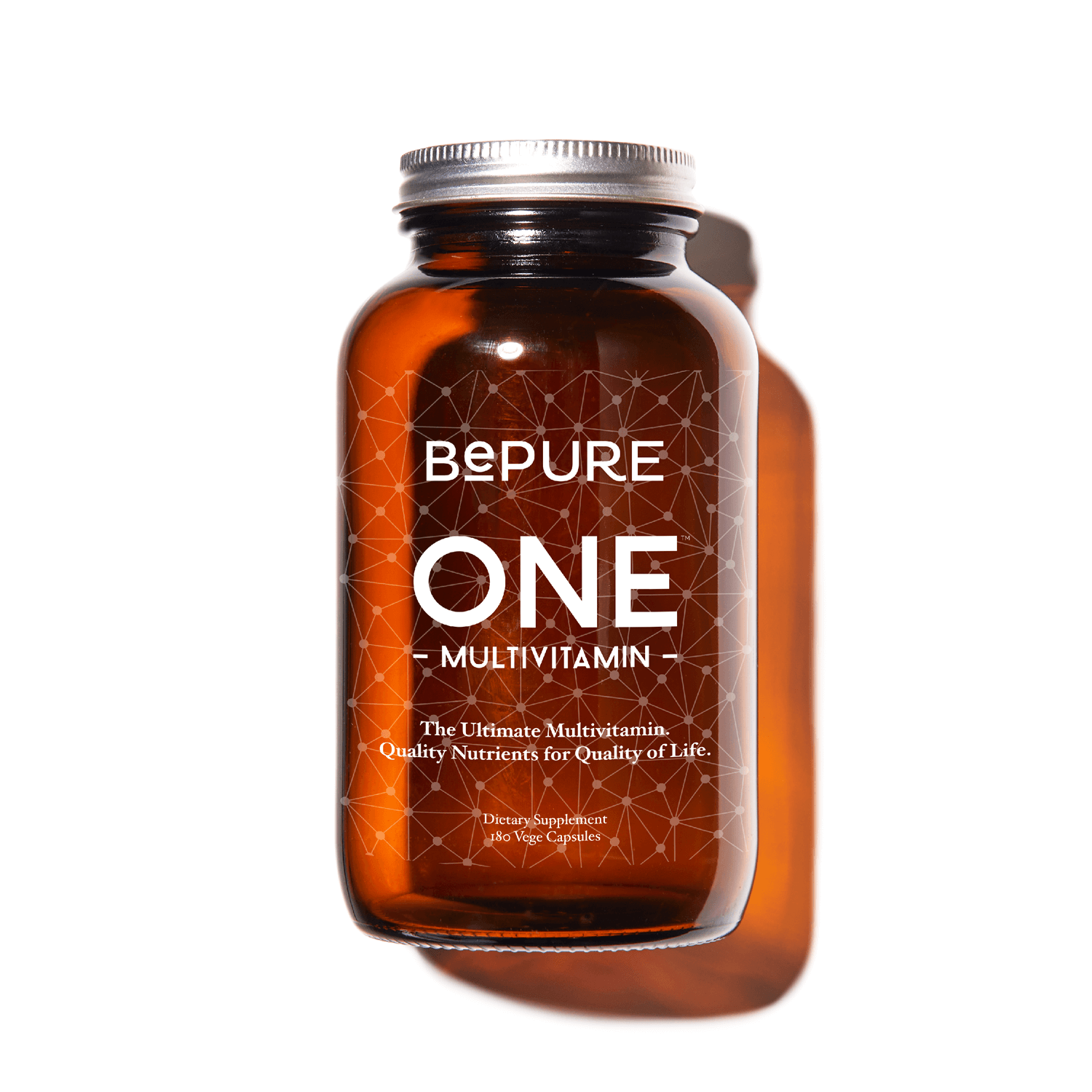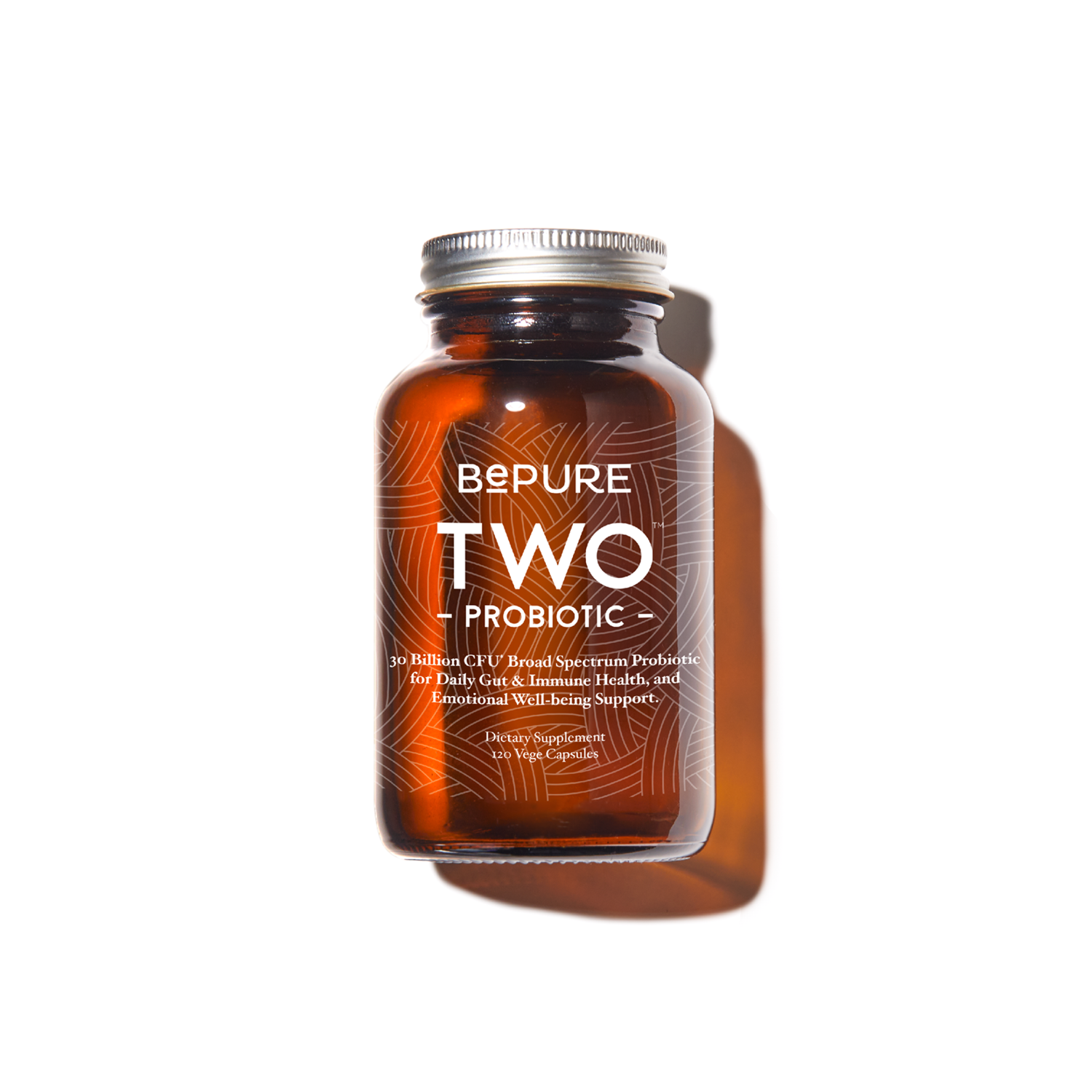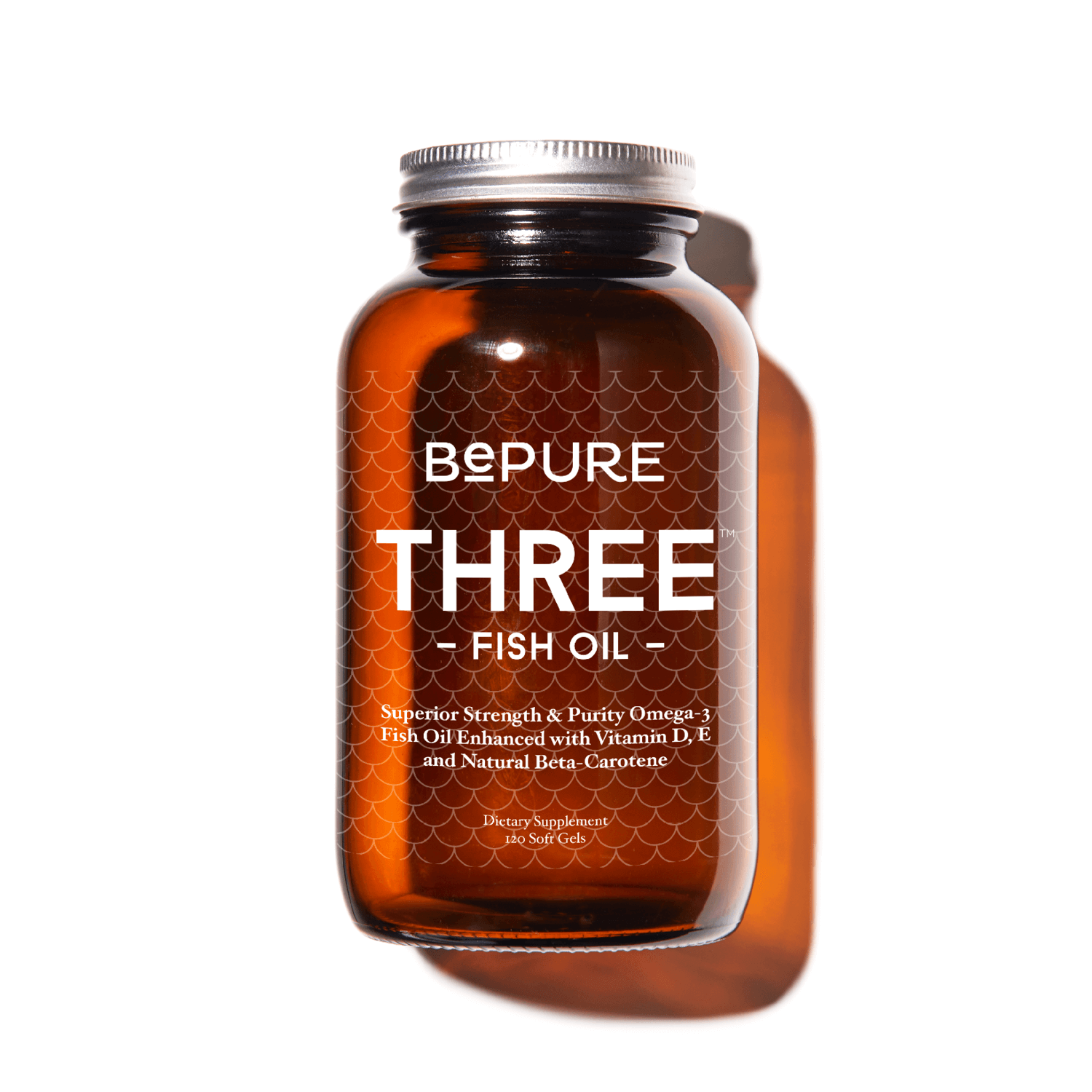Leaky gut is a term that gets thrown around quite often, but what is it, and how do we even know if we have it?
Leaky gut has become increasingly common due to stress and poor diet, which can present in things like chronic diarrhoea, constipation,bloating, fatigue, and joint pain. It can also present itself in skin problems such as acne, rashes, or eczema. If you're curious about or suspect you have a leaky gut, read on to learn what it is, what causes it, and how to address it.
What are some ways you can manage signs of a leaky gut if you think you might be experiencing it?
- Avoid gluten and dairy
- Avoid inflammatory foods
- Add gut healing bone broth and collagen to your diet
- Destress and relax
- Add sufficient vitamin D to your diet, lifestyle and supplements
- Boost your omega 3s and fatty acids
- Enjoy more zinc-rich foods or supplements
- Read on to learn more about these easy steps to nurture a leaky gut with some easy and enjoyable daily changes.
What is a leaky gut?
Leaky gut may sound serious, but it can be prevented, managed, and even reversed. This condition occurs when the epithelial cell junctions, which form the thin layer of the gut barrier, become loose, creating gaps in the gut lining that cause "leaking." The epithelial cell wall comprises the gut lining, separating the inside and outside of the gut.
These gaps allow partially digested foods and larger proteins to pass from the small intestine into the bloodstream. As this is not supposed to happen, the immune system identifies these substances as invaders, similar to viruses or bacteria, triggering an immune and inflammatory response.
What are some signs of a leaky gut?
Although these experiences are not exclusive to leaky gut and it’s always good to check with a health professional if you are experiencing health issues. A permeable gut can be linked to;
- Elevated immune issues such as an autoimmune condition, asthma, hay fever, or eczema.
- Gut dysbiosis (an imbalance of bacteria in the gut) or irritable bowel symptoms including bloating, constipation or diarrhoea, gas, and discomfort.
- Food intolerances or sensitivities. This is usually a symptom and a cause of leaky gut. Sometimes we become sensitive to food if we are eating a lot of it and our systems need a break.
Why do we need to nurture and heal a leaky gut?
The gut is integral to our vitality, energy and happiness and it’s not possible to be truly healthy if our gut is unhappy. Leaky gut is one of the main reasons we experience all sorts of health concerns, from bloating and digestive discomfort to brain fog, autoimmunity and skin issues such as eczema and psoriasis. Luckily, we can address this at home without too much effort!
“In the modern world, we often do not think of our gut when we experience skin issues, energy slumps, or low mood - but we should!”
How can we nurture a leaky gut?
1. Avoid inflammatory foods such as gluten and dairy
Although the idea of giving up precious bread and pastries and going gluten-free can be a difficult thought, it’s definitely one to consider seriously if we’re experiencing signs of leaky gut.
Gluten and dairy can exacerbate a leaky gut because gluten activates a protein called zonulin. Zonulin is the protein responsible for how much the cells in our intestinal walls open. When these walls open too much, as can happen when eating a lot of gluten, proteins that are meant to stay in our gut can move from there, to other parts of the body, which causes inflammation. Where dairy comes in is that for people who are sensitive to gluten, the proteins in dairy can look quite similar so the response of the body to these foods is the same.
When we have inflammation in the gut, it can also be in response to excess sugar, food allergies or gut dysbiosis. Dysbiosis is an imbalance of good and bad bacteria in the gut, which can result in sugar cravings, bad breath, and indigestion.
Avoiding coffee, alcohol, refined sugars, processed foods and foods high in trans-fats may support the healing of our gut lining because they are all highly inflammatory foods and drinks and can lead to gut permeability, or ‘leaky gut’ if consumed regularly.
2. Sip on some bone broth or add in collagen
Bone broth contains healing compounds such as glutamine, collagen, proline, glycine and gelatine. These are essential amino acids and trace minerals that help seal and heal the gut lining. This is because they're easily absorbed, allowing them to provide your gut cells with the direct building blocks needed to rebuild and regenerate. Try this nourishing bone broth soup recipe.
“Bone broth contains essential amino acids, collagen, and trace minerals that help seal the gut lining.”
If bone broth isn’t your thing, a popular alternative is including a high quality collagen supplement. Collagen works in a similar way to bone broth, working to improve the structural integrity of your gut lining.

3. Wind down, de-stress, and relax
Stress is commonly associated with inflammation and can increase leakiness in the gut. This is because large amounts of ongoing stress can negatively impact your gut flora. Although it can feel out of reach at times, to maintain good gut health, aim to manage stress levels in all aspects of your life. Start simple with this handy tip of putting your legs up the wall to bring more calm into your life, or try small things like going for a walk in nature, breathing exercises or practicing restorative yoga.
4. Add in extra Vitamin D
Vitamin D plays a role in restoring beneficial gut bacteria and supporting a healthy gut lining, as it helps control the tightness of the junctions between the gut cells.
This fat-soluble vitamin is found in oily fish like sardines, cod liver oil, lard, pork fat, salmon and mushrooms for a non-animal active form Vitamin D2. It’s also known as the sunshine vitamin, as we can create it when exposed to the sun between the hours of 10am and 3pm during summer, which isn’t always easy to do!
We can’t make vitamin D, so it’s important we incorporate it into our diet or by taking a vitamin D supplement.
5. Boost up on Omega 3 fatty acids
Omega 3 fatty acids are key when it comes to fighting inflammation, which makes it another best friend for supporting a healthy gut and reducing a permeable or leaky gut.
Foods that are rich in omega 3 fatty acids are eggs, nuts, raw milk, leafy green vegetables and oily fish. Omega 3 is an all-rounder that supports inflammation, healthy skin, hormone balance, joint health, and mental wellness. Like vitamin D and other ‘essential’ nutrients, the body cannot make it, so we need to fill our stores by consuming it daily in the form of food or a quality omega-3 fish oil supplement.
6. Make sure you have enough zinc and digestive enzymes
Zinc is a superhero of nutrients that’s involved in over 200 enzyme pathways in our body. In relation to leaky gut, it allows the stomach to produce stomach acid, which helps us to break down foods for absorption and at the same time has the ability to strengthen the gut lining.
Oysters are the number one source of zinc. You can also find zinc in raw milk, lamb, maple syrup, sesame seeds, pumpkin seeds and beef.
Our ability to absorb zinc is also zinc dependent, so if we’re already depleted, it can be incredibly difficult to get back to optimal with our diet alone. In these instances, adding in a quality zinc supplement to your routine is a great decision.
A quick and easy way to improve your digestive enzymes is to also add warm water and lemon juice before you eat or a shot of apple cider vinegar. If this isn’t your thing, a quality digestive enzyme supplement is an easy alternative.
7. Feed your Microbiome with Probiotics
Ensuring your gut is being fed enough of the good guys when it comes to bacteria is important as when we have a leaky gut, this can impact the quality and diversity of our gut microbiome.
A diverse and healthy balance of beneficial bacteria supports us when we’re experiencing leaky gut as they reduce an overzealous immune response, and reduce inflammation which in turn support the healing of our gut.
Good bacteria is also crucial to breaking down and absorbing the nutrients from our food, so eating foods rich in probiotics is a great start or simply add in a quality probiotic to your routine to ensure your gut has a happy and healthy balance of good bacteria.
I think I might have a leaky gut! What next?
- Ensure your diet contains essential nutrients like zinc, omega 3s, and vitamin D and that your life has long periods where you’re managing stress well, getting a lot of rest, and eating mindfully.
- Prep your digestive system with digestive enzymes to support a healthy, balanced microbiome and add a probiotic to your day.



